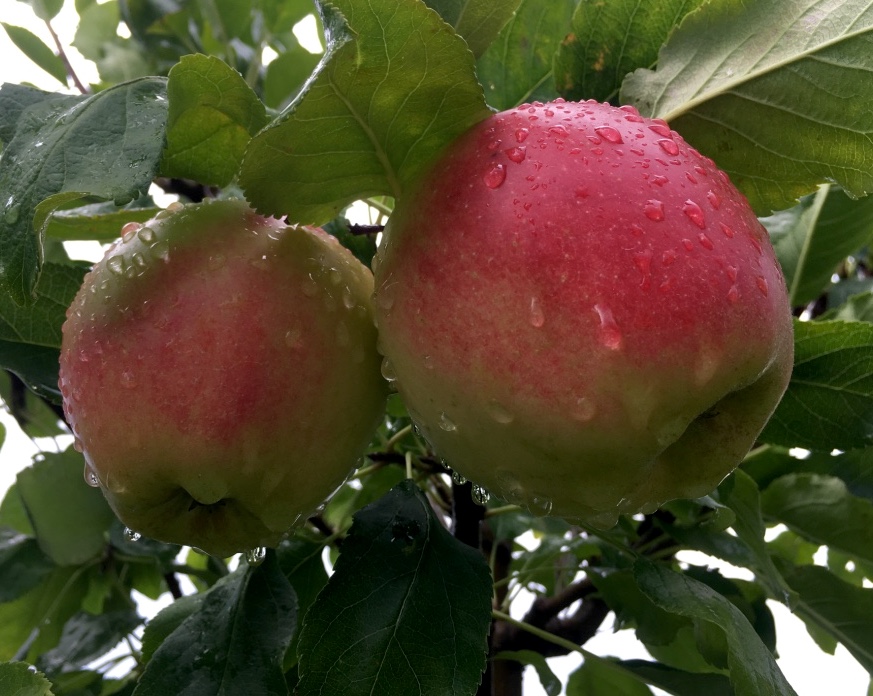
THERE ARE MANY REASONS to choose locally grown apples.
Almost any fruit or vegetable, from strawberries to tomatoes, tastes better the closer it is to where it was grown, and apples are no exception. In New England, from mid-summer throughout the fall people can pick apples right from the tree or purchase freshly harvested ones at supermarkets or orchard stores.
Buying local supports the regional economy, too. New England’s farms and orchards are an integral part of its rural landscape; supporting them is an investment in our way of life.
But the best reason to seek out New England-grown fruit is the incredible variety our orchards offer, the result of the region’s diverse geography, climate, and — most of all — the fact that most of the apples grown in New England are sold and eaten here.
That means that not all New England apples have to withstand the rigors of cross-country or international travel. As a result, New England growers have great latitude in cultivating a wide range of varieties, from the best versions of classics (Cortland) and storied heirlooms (Baldwin), to introducing the new (Ambrosia).

More than 200 varieties are currently listed on the New England Apple Association website, and orchards are always adding more, old and new.
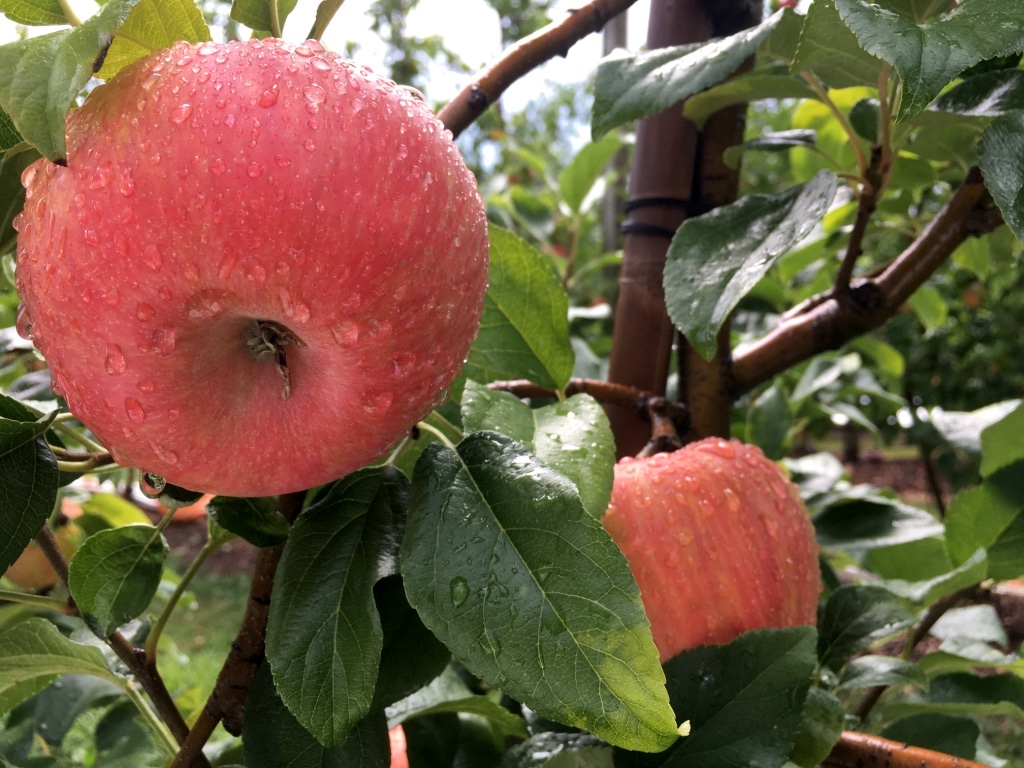
There are so many ways to slice an apple. Grown anywhere, they are a healthy alternative to cookies, candies, and other processed snack foods. But while all apples are juicy, the ones grown closest to home are the juiciest of all (McIntosh).
New England’s cool nights and rocky soils produce Macs of superior flavor and aroma. They can’t be grown commercially in much of the country. Where cultivated, they must be handled with greater care than denser varieties during shipping.
Some apples are too big for the mass market (Twenty Ounce); some are too small (Pitmaston Pineapple). Some varieties are inconsistent in appearance or prone to being misshapen (Sheep’s Nose), making them harder to sort and less desirable to supermarkets.
Some apples do not store well (Akane), and should be consumed within a month or so of harvest. Smaller russeted apples, with their lightly textured, coppery skin (Roxbury Russet), are rarely found among the shiny red, green, or yellow apples dominating produce aisles, despite their distinctive, complex flavors.
A perfectly good apple may not be suitable to be grown on a commercial scale for many reasons. It may be a biennial bearer (Northern Spy), reliably producing a crop only every other year. Certain varieties are challenging to grow (Rhode Island Greening) or susceptible to disease, especially when planted in large quantities.
From Braeburn to Empire, some excellent apples have failed to flourish in part because of lackluster names that say nothing about what they are.
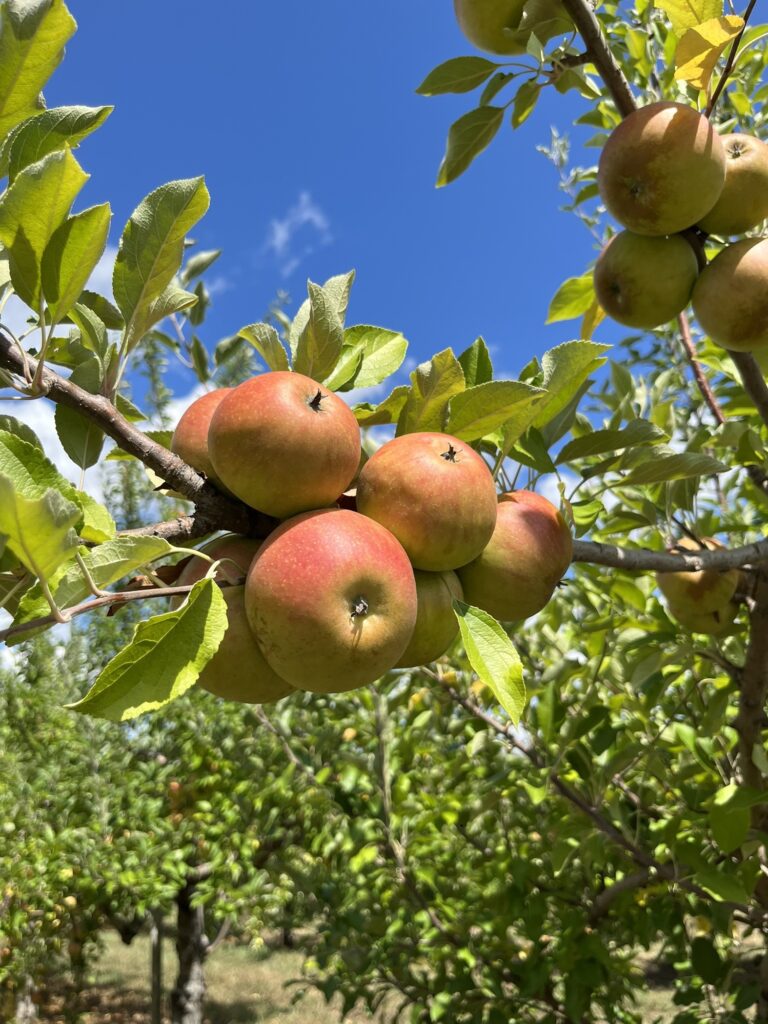
Despite these commercial “flaws,” New England apples offer a remarkable range of flavors and textures along the continuum from tart to sweet. There are apples with hints of lemon (Gravenstein) and vanilla (Sweet Sixteen), mango (Ashmead’s Kernel) and pear (Gala).
There are spicy apples (Macoun) and nutty ones (Cox’s Orange Pippin) and citrusy ones (Pristine); some that develop richer flavors in storage (Idared), large apples that are best enjoyed baked (Mutsu), bittersweet ones that are transformed when pressed into cider (Dabinett).
Taken collectively, the sheer number of varieties grown in New England allow people to experience the apple in its full, kaleidoscopic splendor. Many of them have fascinating histories as well.
New England’s orchards have cultivated a dazzling array of apple flavors, colors, and textures, providing a unique experience of this remarkable fruit for apple connoisseurs and the general public alike.
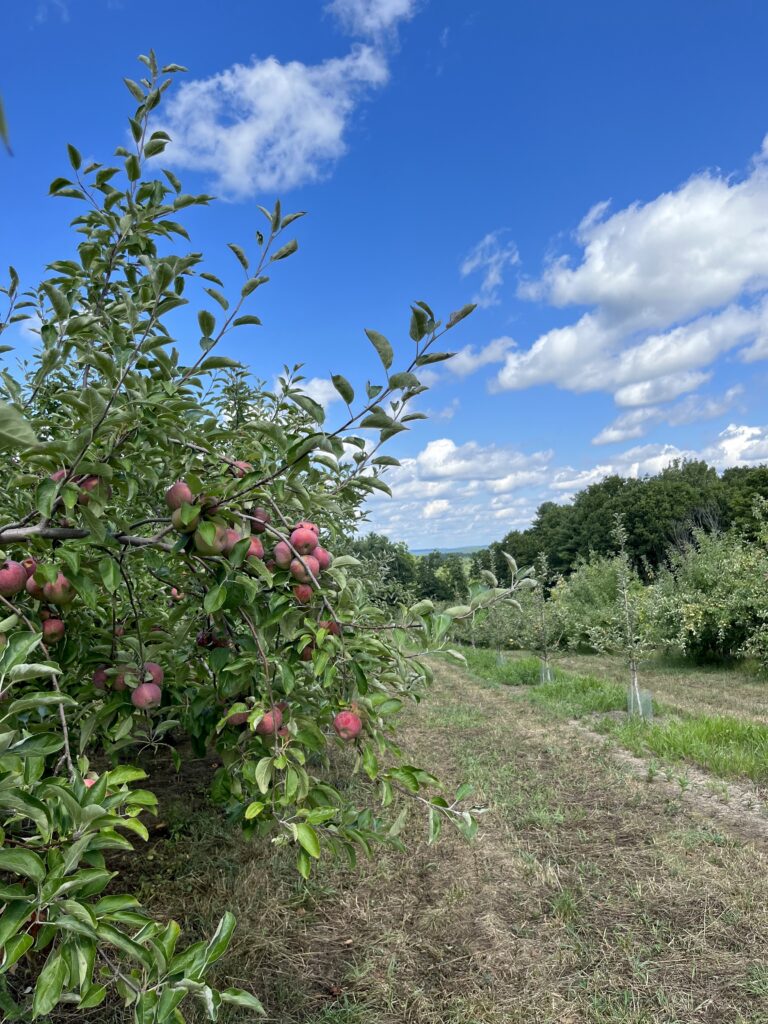
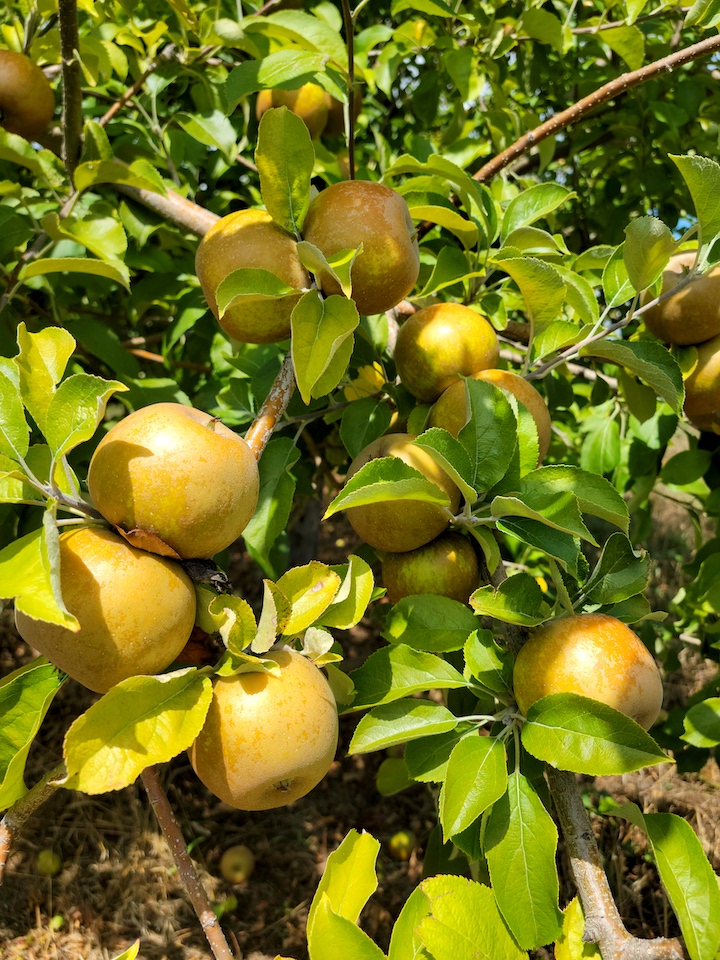

2 Comments
Jonathan A. Wright
I love this! thanks for introducing me to Roxbury Russets years ago, Russett Steven Powell (!) You talk about the apples in ways that inspire and also replicate friendship. This friend loves to hike but is shy in conversation. Another friend loves winter but not so much the summer heat. Thanks for sharing this story of the apple family. They are good companions indeed!
Russell Powell
Many thanks! I continue to be amazed and inspired by this remarkable fruit after all these many years. Glad I am able to give you a taste of them!